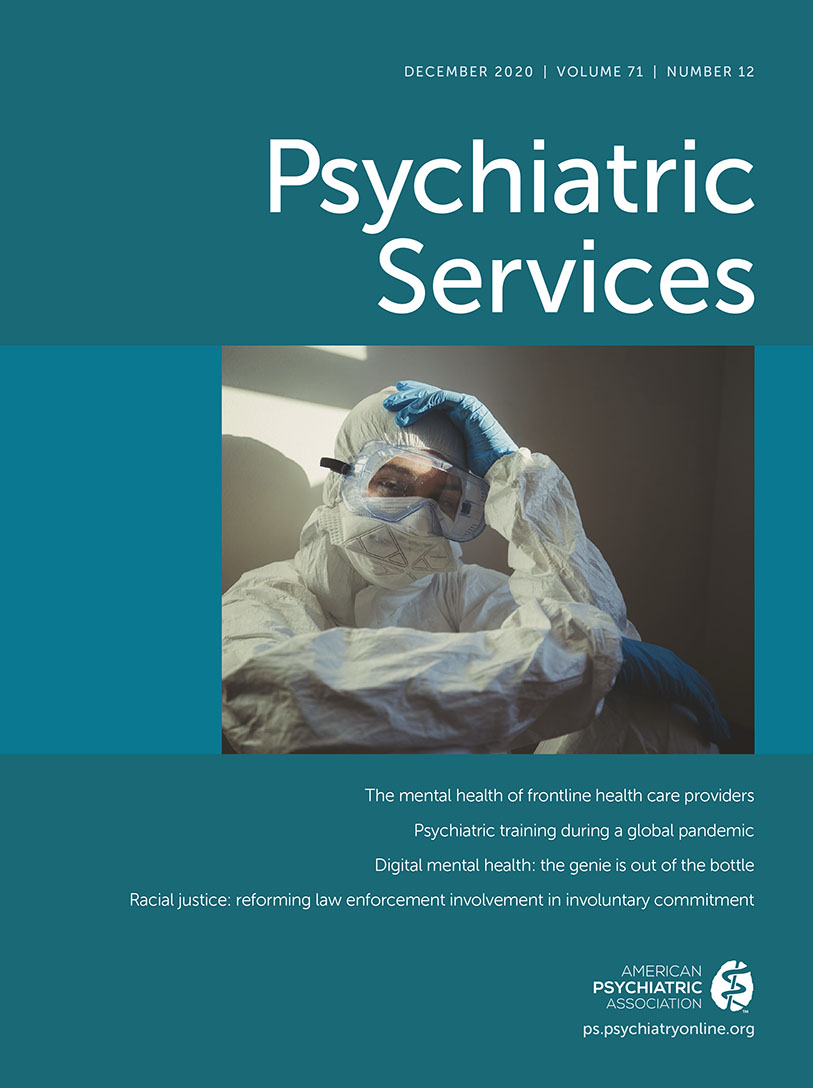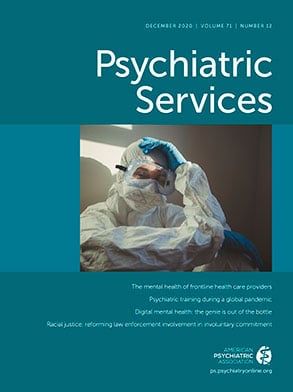TO THE EDITOR: During a time when the landscape of learning was already evolving to meet the needs of busy learners, the impact of COVID-19 necessitated a shift from in-person to remote learning. The Center for Practice Innovations (CPI) serves as a critical resource in spreading evidence-based practices (EBPs) identified by the New York State Office of Mental Health (OMH) to support the transformation of behavioral health care service delivery throughout the state. Since its inception, CPI has offered a hybrid approach, offering training and technical assistance both remotely and in person to adapt to learner and program needs.
Given its already robust online learning platform, CPI was able to rapidly pivot to offer entirely online content, including new training and resources, to support learners during COVID-19 (
1). First, CPI converted all in-person training to a virtual format. Whereas in-person training typically occurs in day-long sessions (given that learners have to travel to training locations), CPI, consistent with adult learning principles (
2), delivered remote training in shorter sessions, often spread across days and with significant breaks within and between those days. Second, CPI created and disseminated a series of training sessions to adapt EBPs for telehealth and address specific COVID-19-related concerns. Third, as onsite practicum placements closed, CPI offered graduate programs access to the online platform to provide their learners with supplementary learning and skill development. Fourth, OMH provided people throughout the state with an emotional support line by toll-free phone and online, leveraging CPI’s online platform to provide training for people staffing this line.
After this shift, CPI saw a rapid increase in new training registrations. In the 6 months prior to March 2020, the mean±SD number of new training registrations was 24,406±9,075. In March and April 2020, those registrations jumped to 57,092 and 42,380, respectively. In these months, while we saw increases from people working for the state’s behavioral health providers, we also saw a large increase from out-of-state behavioral health care providers who were already on contract with CPI for training and facing similar limitations on in-person gatherings (particularly in March) and people staffing the support line (largely in April 2020). May 2020 registrations continued a little higher than average (28,319 registrations), and June 2020 saw a return to average (22,868) as New York began phased reopening.
CPI’s online learning platform has provided additional educational opportunities for learners since the start of the pandemic. Providing training in both synchronous and asynchronous formats has allowed learners the flexibility to access this content (
3). While online learning has demonstrated effectiveness compared with in-person learning (
2), training alone is not sufficient to change practice (
4). Gaining clinical competencies requires scaffolding with practice and coaching to create a holistic learning experience. Hence, CPI also continues to offer remote technical assistance to help learners apply what they have learned and to help supervisors coach their staff. As the system reopens, providers and learners will need continued training and resources to incorporate EBPs into their practice, and CPI is committed to continuously adjust the balance and format of remote and in-person resources to meet those needs.

